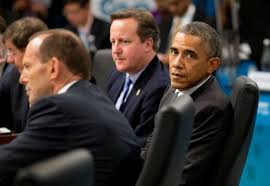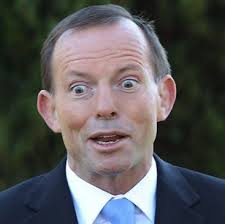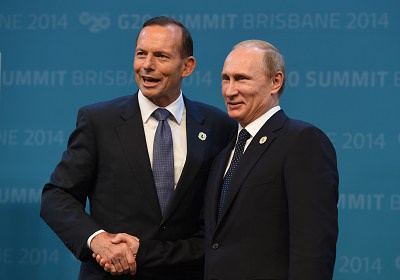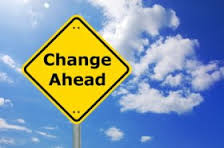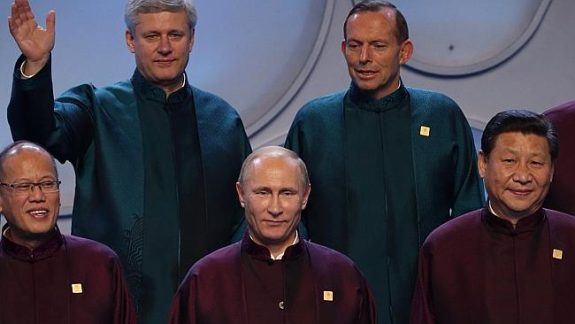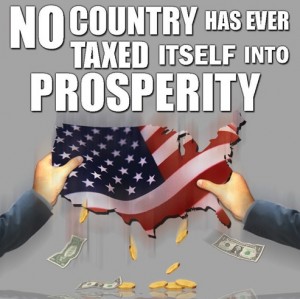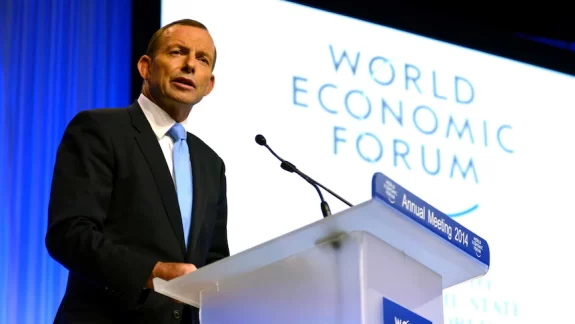Trump’s love for Kim almost upstages G20 farce
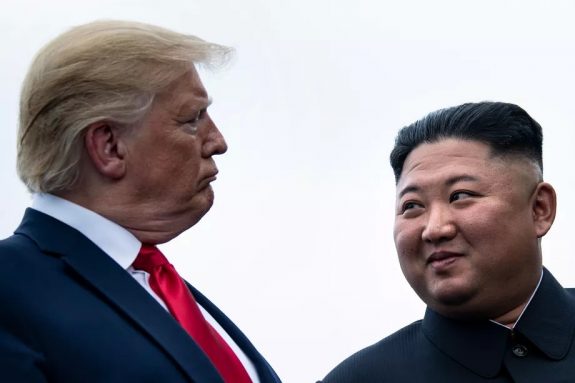
“I never expected to meet you at this place” Kim can’t believe his luck. “He wrote me beautiful letters and we fell in love, Trump tells a Patrick Morrissey rally in West Virginia last September. Love must be in the air, Sunday, as The Donald waddles slowly toward an approaching Kim Jong-un. Trump extends one small, fleshy hand in greeting.
The filming of the men’s cautious approach evokes a western duel. Is it High Noon or just high farce? The romance of a lover’s tryst is subverted for an eternity, it seems, by Trump’s ample rump filling the lens of a hapless cameraman tagging along too close behind. So much historic action to capture. So little time. So many fearful Koreans.
The leaders meet. Shake. It’s a fine bromance, even if Trump had to beg just to get a handshake. Even if the best outcome he’s ever going to get is an agreement from Kim to start talking. Nuclear. Not politics. Love is blind to concentration camps. So Kim has people killed for speaking their minds? Trump argues that the US hHas people killed too.
Kim’s regime has one of the worst human rights records in the world. Crimes “entail extermination, murder, enslavement, torture, imprisonment, rape, forced abortions and other sexual violence, persecution on political, religious, racial and gender grounds, the forcible transfer of populations, the enforced disappearance of persons and the inhumane act of knowingly causing prolonged starvation,” concludes a 2014 United Nations report that examined North Korea.
Retired judge, jurist and academic, Australia’s Michael Kirby is one of the report’s three commissioners.
Trump squeezes Kim’s arm through Kim’s pin-striped Mao suit. Spins Kim around; frog marches him over the 38th parallel, (an ad hoc split of Korea’s 1500 years’ unity, by US decree in 1945). Now he turns, profile to camera, to pump Kim’s mitt. It’s a dangerous liaison – orchestrated – Trump would have us believe, by a single, humble, self-effacing tweet.
“After some very important meetings, including my meeting with President Xi of China, I will be leaving Japan for South Korea (with President Moon). While there, if Chairman Kim of North Korea sees this, I would meet him at the Border/DMZ just to shake his hand and say Hello(?)!” Clearly, Kim finds “His Very Importance” Donald Trump’s humility irresistible.
Epic bromance or bravura braggadocio? Trump’s stunts exceed peak attention-seeking, whatever you may think of the “mentally deranged US dotard”, as Kim once bagged The Donald. His G20 pickings may be slim, but, hey, look over here!
Of course from Kim’s point of view, US recognition is everything. The nuclear weapons threat is working a treat. And the mutual back-patting helps Trump with his myth that he has heroically tamed North Korea’s pocket rocket-monster.
If only Arab and Israeli leaders could apply the same hands-on, speed-date approach to diplomacy. Mid-East peace in our time, a show that even wunderkind Kushner is having trouble with, could all be fixed with a man to man handshake.
“Big Moment. Big Moment”, this week’s episode of the pussy-grabber-in-Chief’s reality TV presidency show, rates its Texan cotton socks off. And Trump’s G20 shtick almost upstages Mohammad bin Salman or MBS who stands smack dab in the middle of the G20 selfie in Saudi Arabia’s G20 photo-op coup, a credit to his product placement smarts.
MBS is a really great guy, great, says Trump. “It’s an honour to be with the Crown Prince of Saudi Arabia, a friend of mine, a man who has really done things in the last five years in terms of opening up Saudi Arabia,” Trump sucks up publicly to MBS. “And I think especially what you’ve done for women. I’m seeing what’s happening; it’s like a revolution in a very positive way.”
Just when a little Saudi sword-jiggle dance appears to be on the cards, Trump is overcome by gratitude, “I want to just thank you on behalf of a lot of people, and I want to congratulate you. You’ve done, really, a spectacular job.”
Spectacular human rights abuse, perhaps? Human Rights Watch’s Middle East director Sarah Leah Whitson, has some sobering, contradictory testimony. “Crown Prince Mohammed bin Salman’s ‘reform campaign’ has been a frenzy of fear for genuine Saudi reformers who dare to advocate publicly for human rights or women’s empowerment. The message is clear that anyone expressing scepticism about the crown prince’s rights agenda faces time in jail.”
By an incredible stroke of luck, Saudi Arabia will host next year’s G20 summit, which gives Prince Mohammed a prominent place for his brand at the front and centre of this year’s dysfunctional “family photo” of leaders Thursday.
A UN Report published last week finds “credible evidence” to warrant further investigation into allegations the crown prince masterminded the killing of Washington Post journalist Jamal Khashoggi whose body was dismembered with a bone saw in a planned assassination. “No conclusion is made as to guilt,” the report states, but: “Evidence points to the 15-person mission to execute Mr. Khashoggi requiring significant government coordination, resources and finances.”
Trump’s historic mission for world headlines goes beyond his reverence for dictators who dismember press critics with bone-cutters to a handshake in the DMZ with Kim. It’s huge even in an age of hyper-spin and hucksters’ hornswoggle.
Yet a shadow must fall. Shit happens, as Tony Abbott will tell you -even to a military man like Donald, a bone-spur draft exemption veteran, the man who put the offence in charm offensive, a roué who tells Howard Stern on Stern’s radio show repeatedly, that avoiding STDs was “my Viet Nam”. Trump jests he should get the Congressional Medal of Honor.
In the May 7, 1998 appearance, obtained and reviewed by CNN’s KFile, Trump also said “women are worse than men, they’re more sexually aggressive than men,” adding, “If they’re married they’re even worse.”
Trump also tells Stern and co-host Robin Quivers the key to his Miss Universe contest, “we don’t base it on talent, we don’t base it on brains.” In an earlier interview he calls his daughter, Ivanka is a piece of ass. In other talks he calls her voluptuous; comments on her figure and her breasts.
Trump is about to jet off to top this year’s G20 Circus, which is all about himself and his diplomatic, deal-making genius, when he is savaged by writer and journalist E Jean Carroll who alleges that he raped her in a Bergdorf Goodman store dressing room in Manhattan in the 1990s. Trump airily brushes aside his twenty-first accusation of sexual misconduct.
“He opens the overcoat, unzips his pants, and, forcing his fingers around my private area, thrusts his penis halfway – or completely, I’m not certain – inside me,” Carroll details how Trump raped her in a department store change room.
It’s just another bum rap, claims The Donald. Besides, she’s “not his type”. “It never happened. He denies he’s ever met Carroll- despite photographs and testimony of two other women, Carol Martin and Lisa Birnbach. He issues a written disclaimer.
Undeterred, the President sets a personal best in offence by publicly insulting Japan, India and Germany within hours of touching down in Osaka for G20, 2019. It’s the annual Neoliberal gab-fest and photo-opportunity in vacuous fatuity which originated in a real need for nations to cooperate to survive the GFC but which is now well past its use by date.
Co-operating to survive is heresy in a White House where a rules-based world order is less popular than nuking Tehran. There’s no risk of any change to “Bush-era war hawk,” John Bolton and “cheerleader of hatred”, Mike Pompeo’s mad plan to attack Iran. Nor will Trump budge in his equally disastrous trade war with China, for all his bluster about “continuing talks”.
But now he’s talked up a tariff war with America’s largest trading partner outside the EC, he can talk it down. It’s one of Trump’s typical approaches to negotiation. Bully-boy tactics are followed by some degree of appeasement. In this case his next wave of tariffs will be postponed. Huawei may be able to import US materials but who knows? Trump has made no specific commitments, Reuters reports.
The world’s two largest economies remain locked in the midst of a bitter and mutually disastrous trade war despite Trump’s sanguine mood.
It’s déjà vu all over again to Phil Coorey, guru of The Australian Financial Review, an arm of Nine Entertainment,
“So here we are again, new city, same situation. The WTO still hasn’t been reformed, the trade war is worsening and the world awaits another meeting between Trump and Xi.”
Luckily, Trump fanboy, little Aussie groveler, Scottie Morrison, is just busting to schmooze The Godfather of the free world. Hard-working Australians thrill to see our taxes hard at work flying ScoMo’s crack trade squad business class to Japan just for “a working dinner” with The Donald, his family and a few toadies on staff he hasn’t had time to sack yet.
As bad luck would have it, some of ScoMo’s lies are catching up with him now that Liberal hack Niki Savva’s book is out and extracts from others including Turnbull himself and his fan, David Crowe, are appearing in The Australian. The transparent lie that Morrison did not plot to remove Turnbull is surely untenable in the face of an expanding body of opposing evidence.
Yet ScoMo dismisses his past behaviour. Being a disloyal liar last August is no clue to his present character. He says he knows we aren’t interested in ancient history. We’ve got exciting new unaffordable tax cuts to look forward to. A progressive tax system to flatten to accelerate our rapidly accelerating social and economic inequality. In the meantime, another foreign invasion would help restore some of ScoMo & Co’s waning credibility at home.
ScoMo & Co are so eager to help put pressure on Iran that no-one even bothers to ask what that means. Nor does the PM raise tricky stuff like bothering The Donald to ask Kim if he knows the whereabouts of 29 year-old Perth student, Alek Sigley who disappeared in North Korea a week ago. Trump’s got enough on his plate without finding lost Aussies.
Besides direct questions are dangerous. Morrison suggests we must temper our compassion with indirection – or something. His response is typically oblique, indirect, inadequate and offers little hope to Sigley’s wife and family.
“I will just be measured in what I say because that is all about using the best opportunities we have right now to, to inform ourselves about where Alek is and what his safety is and where he is being held, in what conditions,” cop-out Morrison tells reporters on Saturday evening. Our tough on borders door bitch is too afraid to tackle Kim.
President Pinocchio tells everyone he predicted Scott’s victory all along. How good are Trump’s lies? He makes a cryptic witticism in the midst of his self congratulation. It baffles everyone. Is it a droll non-sequitur or just a bloke’s joke?
“They called it an upset, but I don’t call it an upset. You probably didn’t. Your wife didn’t call it an upset,” gags the subtle funster as he takes a rise out of a fawning ScoMo & Co at the Thursday dinner. Cue over-hearty, sycophantic guffaws. Is that a rocket in Hockey’s pocket, or is he just happy to play golf with a lying, narcissistic psychopath who cheats? Or is he just turned on by wealth?
Along with normalising Trump with his mindless sycophancy, ScoMo has his own stunt to get a bit of international attention. Facebook, Twitter, You Tube, Snapchat and other social media delinquents need to stop hosting terrorist stuff, he says. Terrorism is bad. Other leaders are overjoyed there’s at least a chance to be part of something join in,
“The internet must not be a safe haven for terrorists to recruit, incite or prepare terrorist acts,” leaders agree solemnly in the mother of all motherhood statements. Yet it’s the laughably earnest, toothless, injunction that follows that exposes the G20’s impotence. It’s not so much a toothless tiger as a pussy-cat in high dudgeon.
“We urge online platforms to meet our citizens’ expectations that they must not allow use of their platforms to facilitate terrorism and VECT. Platforms have an important responsibility to protect their users.”
The statement is a Morrisonian masterpiece of sonorous but evasive vacuity, an apparent tough stand which is in fact a retreat from real commitment. It’s symbolic and voluntary and compels tech companies to do nothing; nor the nations to pass the sort of beaut new surveillance and security laws which since 2011, we have eagerly invented to turn ourselves into a police state. But we’ve jumped the shark. Australia has already legislated in this area,
As Josh Taylor reminds us we passed “world first” laws in April creating new offences for service providers that fail to remove videos depicting “abhorrent violent conduct” including terrorist acts, murders, torture, rape or kidnapping. But isn’t the state guilty of abhorrent violent conduct itself constraining refugees indefinitely on Manus and Nauru?
Service providers won’t be able to host evidence of the Coalition government’s own brutality and inhumanity. Australia’s report, released to coincide with the gabfest, in fact may do more than the whole G20 in terms of putting pressure on Facebook, Twitter, Snapchat and other social media. Yet, as another means to censorship and government secrecy, it may have unintended consequences.
The torture of refugees by indefinite detention in Australia’s offshore prisons does not rate a mention from ScoMo’s audience. State terror? No way. Trump is upbeat about our sadistic cruelty to those innocents whose only fault is to be wretchedly dispossessed and alienated; forced to throw themselves on our mercy. Deny them medical treatment. It helps deter others. There is general approbation of the nonsense of strong borders. Yet our vast borders have never been so porous.
Asylum-seeker arrivals by plane are at an all time high, according to Home Affairs, which processed 27,931 protection visa applications last financial year. The men, women and children who fly here are less likely to be “genuine refugees”
Despite its claim of stopping the boats, the Coalition’s own data shows it’s soft on borders. In four years, 64,362 protection visa applications have been made by un-vetted individuals who have arrived by plane writes Michael Pascoe, clear evidence that Scott Morrison and Peter Dutton have been ineffectual immigration or border enforcing ministers. And liars.
Other leaders make sympathetic noises. How good is ScoMo’s idea that we police social media? Ban it perhaps? How can (US) Citizen Murdoch stay in power with social media correcting his falsehoods; presenting accurate information?
Tuesday, Trump posts a series of our anti-asylum posters which say: “If you come here by boat without a visa you won’t be settled in Australia” and “Australia’s borders are closed to illegal migration”. “Much can be learned!” he tweets. Learned? The Coalition’s ongoing inhumanity and breach of international refugee convention is now a toxic contagion?
Tragically, some of ScoMo&Co’s limelight is stolen by Christopher Pyne’s brilliant new career. The Fixer’s been snapped up by EY, (formerly Ernest and Young) which breaks all ministerial guidelines for his expertise which includes the hunt the Slipper diary farce and his bastardry as Leader of The House, a role invented by IPA stooge, Bob Menzies in 1951.
One in four ministers go on to become lobbyists, reports The Grattan Institute. A Guardian investigation last year found over half of all registered lobbyists previously worked in some government role or for major political parties.
Expect the first question time of the new parliament to be taken up with at least a few Labor questions about Fixer Pyne being able to fix himself up so soon and in defence, such a bottomless pit of funds to shovel out. But without a code of conduct with real sanctions, there is no way to shut the revolving door. Or safeguard our democracy from being further corrupted by vested interests.
Despite his best efforts and a slew of expert has-beens, including occasional Trump golf partner and professional leaner, Joe Hockey but, oddly, not Marise Payne, our stay-at-home Foreign Minister, ScoMo can only insult Australians with his sickening sycophancy; grovelling to the monster-baby whose trade war with China and baiting of Iran could unfix us all.
Trump’s Osakan hosts are beguiled as the American President says the U.S.-Japanese defence alliance is unfair. Happily, funster Trump adds a commercial promo to his gaffe, joking that if the almighty United States were attacked, Tokyo could leave Washington in the lurch and instead “watch it on a Sony television.” Allies love to feel needed. Laughed at.
Japanese PM Shinzo Abe, whose stagey and supremely ill at ease act as Super Mario, an Italian plumber climbing out of a pipe, at the closing of the Rio Olympics, upstages anything his policies or charisma-bypass personality could ever achieve, is somehow this year’s perfect host. Abe is to the G20’s success as Tom Gleeson’s Gold Logie is to The sacred Logies but host aside, – and who can forget Tony Abbott quizzing G20 leaders about how to solve his brilliant doctor’s co-payment ideas in 2014 – the G20 is its own toxic self-parody. The world waits in eager anticipation of the Saudi show next year.
Perhaps MBS, like the great god capitalism, will lead by invisible hand to issue a communique of the need for arms dealers everywhere to assume their rightful legal liability for the injuries, suffering and property damage inflicted by their products. We have similar arrangements for other commercial products and services. Of course, we’d need to talk sense into insurance companies with their weasel worded “acts of war” clauses allowing them not to pay out as at present.
While we are at it, we could make Adani and other coal miners legally liable for damage caused by global warming boosted by the use of their product anywhere in the world. And environmental devastation.
Finally, to be inclusive of our generous Saudi hosts, let’s have a similar liability for the sale and subsequent use of hydrocarbon products, especially dirty diesel. That’d be a cracker of a G20.
Like what we do at The AIMN?
You’ll like it even more knowing that your donation will help us to keep up the good fight.
Chuck in a few bucks and see just how far it goes!











